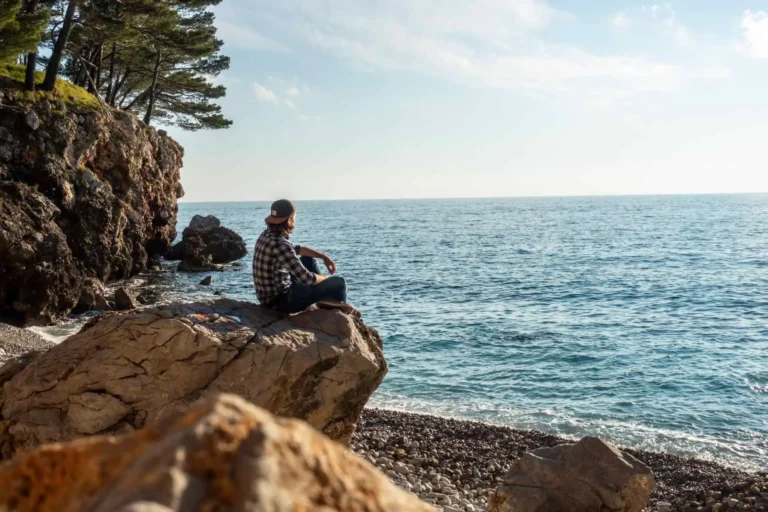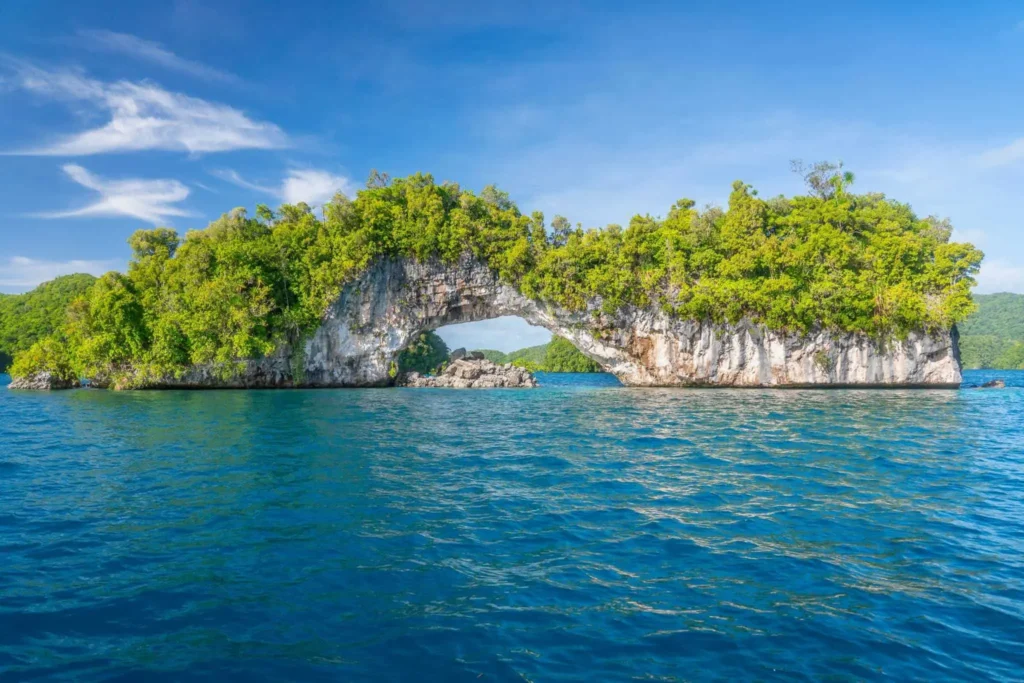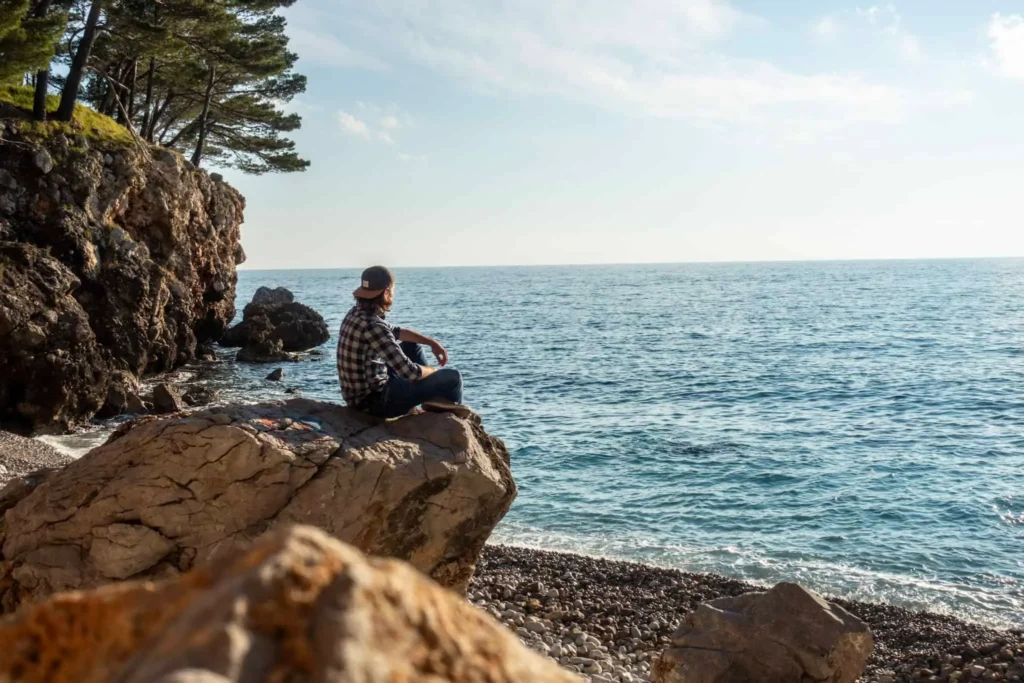| This post may contain affiliate links. Whenever you book or buy something through one of these, Giving Getaway gets a small commission, of which 100% will be donated to charity, without any extra cost to you! |
The tourism industry is a complex network of interconnected roles that go beyond the obvious, front-facing positions. In this article, I will give 20 examples of indirect jobs in tourism, shedding light on the often unnoticed contributions made by behind-the-scenes contributors.
Dive into this informative article and gain a deeper understanding of how these individuals contribute to your vacation enjoyment. Explore the diverse range of roles, and appreciate the often overlooked work that goes into creating unforgettable trips.
Difference Between Direct and Indirect Jobs in Tourism
An important distinction exists between direct and indirect roles within the tourism industry, with direct positions involving direct interaction with tourists and indirect positions supporting the infrastructure and operations behind the scenes.
Direct jobs in tourism encompass various roles such as tour guides, hotel staff, and travel agents who directly interact with tourists. These positions require strong communication skills, cultural knowledge, and customer service abilities to ensure a positive tourist experience. On the other hand, indirect jobs in tourism include professionals working in sectors like transport, accommodation management, marketing, event planning, and government agencies responsible for policy development.
While these roles may not have direct contact with tourists, they play a crucial role in creating a seamless experience for visitors by ensuring smooth transportation logistics, maintaining quality accommodations, promoting destinations through effective marketing strategies, and organizing events to attract tourists’ attention while adhering to government regulations.
Indirect jobs are essential for supporting the overall functioning of the tourism industry by providing necessary infrastructure and operational support behind the scenes. And now let us take a look at 20 examples of indirect jobs in tourism!
1) Food Supplier for Restaurants
The food supplier for restaurants plays a crucial role in the tourism industry by providing the necessary ingredients and supplies to support the culinary offerings of dining establishments. These suppliers ensure that restaurants have access to a wide variety of high-quality food products, ranging from fresh produce to meat, dairy, and specialty items.
They work closely with chefs and restaurant owners to understand their specific needs and preferences, offering tailored solutions that meet the demands of both local and international cuisines.
Moreover, food suppliers play a significant part in maintaining consistent quality standards across multiple locations of restaurant chains or hotel groups. By ensuring a reliable supply chain, they contribute to the overall success of the tourism industry by enabling restaurants to offer diverse menus that attract visitors from all over the world.
2) Cultural Heritage Preservation Specialist
Preserving cultural heritage is a multifaceted task that involves the documentation, conservation, and promotion of tangible and intangible aspects of a society’s history and traditions. Cultural heritage preservation specialists play a crucial role in safeguarding and promoting these valuable assets.
These professionals possess extensive knowledge of historical contexts, architectural styles, traditional practices, and oral traditions. They are responsible for conducting research, documenting artifacts, conserving physical structures, organizing exhibitions or events, and collaborating with communities to ensure the transmission of cultural knowledge.
By utilizing their expertise in archival methods and conservation techniques, cultural heritage preservation specialists contribute to the sustainable development of tourism by attracting visitors interested in experiencing authentic cultural experiences. Their work not only preserves the past but also fosters social cohesion, identity formation, and economic growth through tourism revenue generation while ensuring the protection of intangible values for future generations.
3) Maintenance Technician for Accommodations and Attractions
Maintenance technicians play a significant role in ensuring the smooth operation and upkeep of tourist accommodations and attractions. These professionals are responsible for the maintenance, repair, and inspection of various facilities, such as hotels, guesthouses, amusement parks, museums, and historical sites. Their expertise in electrical systems, plumbing, HVAC (heating, ventilation, and air conditioning), and general infrastructure is crucial in maintaining a safe environment for visitors.
Maintenance technicians conduct regular inspections to identify potential issues or hazards that may affect visitor experience or safety. They also perform preventive maintenance tasks to minimize equipment downtime and maximize operational efficiency. By adhering to industry standards and regulations, maintenance technicians contribute to the overall quality assurance of tourist attractions.
Moreover, these professionals respond promptly to any emergencies or breakdowns that may occur during operating hours. Their quick problem-solving skills ensure minimal disruption to visitors’ experiences while safeguarding their well-being.
4) Marketing Copywriter for Tourism Campaigns
Marketing copywriters for tourism campaigns craft compelling and persuasive messages to attract and engage potential visitors, utilizing their creative writing skills to effectively communicate the unique experiences and attractions offered by a destination. These professionals play a crucial role in promoting tourism by creating captivating content that resonates with the target audience. Their primary objective is to generate interest and desire among potential visitors, ultimately leading to increased tourist arrivals.
To achieve this, marketing copywriters employ various techniques such as storytelling, emotional appeal, and highlighting key features of the destination. They conduct thorough research on the target market’s preferences and interests to tailor their messages accordingly. By analyzing data on consumer behavior, market trends, and competitor strategies, these copywriters ensure that their campaigns are relevant, engaging, and effective in driving tourism growth for a specific location.
5) IT Support for Online Booking Platforms
One crucial aspect of ensuring the smooth operation of online booking platforms is reliable IT support, which involves addressing technical issues, troubleshooting system errors, and providing assistance to users in navigating the platform effectively. IT support plays a significant role in maintaining the functionality and user-friendliness of these platforms.
Without proper IT support, users may encounter difficulties in accessing information or making bookings, leading to frustration and potential loss of business for tourism companies. Data shows that 76% of travelers prefer to book their accommodations online, highlighting the importance of a seamless booking experience.
Additionally, studies have found that customers who have positive experiences with online booking platforms are more likely to become repeat customers and recommend the platform to others. Therefore, investing in robust IT support systems is crucial for tourism businesses to maintain customer satisfaction and loyalty in an increasingly digital world.
6) Event Logistics Coordinator
Event logistics coordinators are responsible for overseeing the planning, coordination, and execution of various logistical aspects involved in organizing events, ensuring that all necessary resources and services are efficiently managed to ensure a successful event. They play a crucial role in the seamless execution of events by handling tasks such as venue selection, transportation arrangements, equipment rental, and catering services.
By applying their analytical skills and knowledge of event management principles, they ensure that all logistical requirements are met within budget constraints. This includes coordinating with vendors, negotiating contracts, and managing timelines to optimize efficiency.
Additionally, event logistics coordinators must be able to adapt quickly to changing circumstances and problem-solve effectively to address any issues that may arise during an event. Their expertise is essential in creating memorable experiences for attendees while maintaining a well-organized and smoothly run event.
7) Landscape Maintenance Worker for Parks
Landscape maintenance workers play a vital role in ensuring the upkeep and aesthetic appeal of parks through tasks such as mowing lawns, trimming trees and shrubs, planting flowers, and maintaining irrigation systems. These workers are responsible for the overall appearance and functionality of outdoor spaces, contributing to the satisfaction of park visitors.

The work they perform requires a combination of physical labor, technical skills, and knowledge aboutof plant care. For instance, they must understand proper pruning techniques to maintain the health and shape of trees and shrubs.
Additionally, they need to be knowledgeable about irrigation systems to ensure adequate watering without wasting resources. Through their efforts, landscape maintenance workers contribute to creating pleasant environments that promote relaxation and enjoyment for park-goers while preserving natural beauty.
8) Public Relations Specialist for Travel Destinations
In addition to data analysis, another important behind-the-scenes contributor in the tourism industry is the Public Relations (PR) specialist for travel destinations. PR specialists play a crucial role in promoting and managing the image of travel destinations to potential visitors.
Their responsibilities include developing strategic communication plans, coordinating press releases and media events, cultivating relationships with journalists and influencers, and managing crisis communications. By effectively communicating the unique features and attractions of a travel destination, PR specialists help generate positive publicity and increase visitor numbers.
They also work closely with tourism boards, government agencies, hotels, airlines, and other stakeholders to ensure cohesive messaging and branding. The success of their efforts can be measured by media coverage, social media engagement, visitor feedback surveys, and ultimately increased tourist arrivals.
9) Data Analyst for Tourism Trends
The role of a data analyst for tourism trends involves analyzing and interpreting large datasets to identify patterns, trends, and insights that can inform decision-making and strategic planning in the tourism industry. Data analysts play a crucial role in understanding consumer behavior, market dynamics, and emerging trends within the tourism sector.

By utilizing various statistical techniques and analytical tools, data analysts can extract meaningful information from vast amounts of data. This information helps stakeholders in the tourism industry make informed decisions regarding marketing strategies, product development, pricing strategies, and resource allocation.
Additionally, data analysts provide valuable insights into customer preferences, travel patterns, and destination choices that can be used for targeted marketing campaigns. Overall, their expertise aids in maximizing profitability and competitiveness within the dynamic landscape of the tourism industry.
10) Accounting Consultant for Hospitality Businesses
Accounting consultants for hospitality businesses provide financial expertise and guidance to ensure the effective management of financial resources and compliance with industry regulations. These professionals play a critical role in helping hospitality businesses maintain accurate and transparent financial records, analyze financial data, and make informed decisions.
They are responsible for tasks such as preparing financial statements, managing budgets, conducting internal audits, and ensuring tax compliance. Accounting consultants also assist in identifying areas for cost reduction, improving revenue generation, and implementing effective internal controls.
By leveraging their knowledge of accounting principles and industry-specific regulations, they help hospitality businesses optimize their financial performance and mitigate risks. Their analytical skills enable them to identify trends, patterns, and areas of improvement based on financial data analysis.
11) Transportation Fleet Manager for Tour Companies
Transportation fleet managers for tour companies oversee the logistical operations and maintenance of vehicles to ensure efficient transportation services. They play a crucial role in coordinating and managing the entire fleet of vehicles used by the company.

Their responsibilities include scheduling vehicle maintenance, tracking fuel usage and costs, monitoring driver performance, and ensuring compliance with safety regulations. Effective fleet management requires analyzing data related to vehicle utilization, maintenance schedules, and fuel consumption to identify areas for improvement in terms of cost efficiency and operational effectiveness.
Additionally, transportation fleet managers need to stay updated on industry trends and technological advancements that could enhance their operations. By employing their analytical skills and knowledge of transportation logistics, these managers contribute to the seamless functioning of tour companies’ transportation services while maintaining high standards of efficiency and customer satisfaction.
12) Sustainability Consultant for Eco-Tourism Initiatives
Sustainability consultants for eco-tourism initiatives provide expert advice and strategies to promote environmentally responsible practices within the tourism industry. These consultants play a vital role in helping businesses operate more sustainably, reducing their negative impact on the environment while also enhancing their long-term viability.
By conducting thorough assessments of current practices and identifying areas for improvement, sustainability consultants can develop tailored strategies that address specific environmental concerns. This may include implementing energy-efficient technologies, reducing waste generation, conserving water resources, and promoting biodiversity conservation.
Through their expertise and knowledge of best practices, sustainability consultants help eco-tourism initiatives minimize their carbon footprint and preserve natural resources while still providing visitors with memorable experiences. Their analytical approach ensures that these recommendations are grounded in data-driven evidence and align with industry standards for sustainability.
13) Security System Installer for Resorts
Resorts rely on security system installers to ensure the safety and protection of their guests, staff, and assets by implementing advanced technologies and equipment that deter potential threats. These professionals play a crucial role in maintaining a secure environment within resorts, mitigating risks such as theft, vandalism, or unauthorized access. Security system installers are responsible for designing and installing alarm systems, surveillance cameras, access control systems, and other related equipment.

They must possess knowledge of various security technologies and be skilled in integrating them into the resort’s infrastructure effectively. Additionally, they need to stay updated with the latest advancements in security systems to provide optimal protection. By employing competent security system installers, resorts can create an atmosphere of safety that enhances guest satisfaction and contributes to the overall success of the establishment.
14) Convention Center Facility Manager
Convention center facility managers are responsible for overseeing the maintenance, operations, and overall functionality of the convention center’s facilities and infrastructure. They play a critical role in ensuring that the space is well-maintained and equipped to meet the needs of various events and conferences. Facility managers are involved in tasks such as coordinating with vendors for repairs or upgrades, managing budgets for maintenance and renovations, and implementing safety protocols.
In addition, they must have a thorough understanding of building codes, fire safety regulations, and accessibility requirements to ensure compliance. By efficiently managing resources and maintaining high standards of quality, convention center facility managers contribute to creating a conducive environment for successful events while maximizing revenue generation opportunities. Their expertise is essential in facilitating smooth operations behind the scenes at convention centers.
15) Social Media Manager for Travel Brands
Social media managers for travel brands are responsible for creating and implementing strategic social media campaigns that effectively promote the brand and engage with the target audience. These professionals play a crucial role in enhancing brand visibility, increasing customer engagement, and ultimately driving business growth.

Through their analytical approach, social media managers utilize data-driven insights to identify key trends and preferences of their target audience. They conduct market research to understand consumer behavior and develop content strategies that resonate with potential travelers.
By leveraging various social media platforms, these managers can effectively communicate the unique selling points of a travel brand, highlight its offerings, and foster meaningful relationships with customers. Furthermore, they constantly monitor campaign performance metrics such as reach, engagement rate, and conversion rates to optimize their strategies accordingly.
16) Travel Insurance Provider
The role of a travel insurance provider is to offer coverage and protection to individuals traveling domestically or internationally, ensuring that they are financially safeguarded against unforeseen circumstances such as trip cancellations, medical emergencies, or lost luggage.
Travel insurance providers play a crucial role in mitigating the financial risks associated with travel by providing policies that cover various aspects of travel-related expenses. These policies typically include reimbursement for canceled trips due to unforeseen events, medical expenses incurred during travel, emergency medical evacuation services, and compensation for lost or stolen baggage.
By analyzing data on customer claims and trends in the travel industry, these providers determine the appropriate coverage and pricing for their policies. They operate within a highly regulated industry where compliance with local laws and regulations is essential to ensure the validity and legality of their offerings.
17) Waste Management Personnel for Tourist Areas
Waste management personnel in tourist areas play a crucial role in maintaining cleanliness and sanitation, ensuring the proper disposal of waste generated by tourists, and mitigating the environmental impact of tourism activities. These individuals are responsible for managing the collection, transportation, and disposal of waste efficiently and sustainably.
They work closely with local authorities, businesses, and residents to develop effective waste management strategies that meet the specific needs of tourist destinations. By implementing proper waste management practices, these personnel contribute to preserving the natural beauty of tourist areas and protecting the health and well-being of both visitors and local communities.
Moreover, their efforts help reduce pollution, conserve resources, and promote sustainable tourism development. Data-driven approaches are employed to analyze waste generation patterns, plan for adequate infrastructure requirements, educate tourists on responsible waste disposal practices, and monitor compliance with regulations.
18) Market Researcher for Travel Demographics
Another important behind-the-scenes contributor to the tourism industry is the market researcher for travel demographics. Market researchers play a crucial role in analyzing and understanding the preferences, behaviors, and trends of travelers. By collecting and analyzing data on factors such as age, income level, nationality, travel patterns, and interests, these professionals provide valuable insights that help tourism businesses tailor their offerings to meet customer demands.
Market researchers employ various methods including surveys, focus groups, and data analysis to uncover patterns and make informed recommendations for marketing strategies. Their work helps businesses identify target markets, develop effective promotional campaigns, optimize pricing strategies, and improve overall customer satisfaction. The expertise of market researchers ensures that tourism businesses remain competitive in an ever-evolving industry by keeping up with changing consumer preferences.
19) Linen and Bedding Supplier for Hotels
An essential aspect of hotel operations involves sourcing and maintaining a steady supply of linen and bedding. This is crucial for ensuring guest comfort and satisfaction. Hotel linen suppliers play a vital role in meeting the demands of the hospitality industry. They provide a range of products, including bed sheets, pillowcases, towels, and bathrobes. Suppliers must ensure that these items meet quality standards and are regularly replaced to maintain their pristine condition.
The demand for hotel linen is directly influenced by factors such as occupancy rates, number of rooms, and guest preferences. According to industry data, the global hotel linen market is expected to reach $12 billion by 2025, driven by the growing number of hotels worldwide. Consequently, there is a constant need for reliable suppliers who can deliver high-quality linen products efficiently and on time.
20) Government Tourism Inspector
The role of a government tourism inspector involves monitoring and evaluating compliance with regulations in the tourism industry. These inspectors play a crucial role in ensuring that businesses operating within the tourism sector adhere to established guidelines and standards. Their responsibilities include inspecting accommodations, transportation services, tourist attractions, and other related facilities to ensure compliance with safety, hygiene, and quality requirements. Government tourism inspectors also assess whether proper licenses and permits are obtained by these establishments.
A key aspect of their work is conducting regular inspections to identify any violations or areas of improvement. They analyze data collected during inspections to identify trends or patterns that may require further attention or intervention from regulatory bodies. By closely monitoring compliance with regulations, government tourism inspectors contribute to maintaining high-quality standards in the tourism industry.
Their work not only benefits tourists but also supports the overall growth and development of the tourism sector by promoting professionalism, sustainability, and customer satisfaction. Through their knowledge and expertise, they help maintain a safe and enjoyable experience for visitors while upholding industry standards.
Conclusion
So there you have it, a comprehensive list of 20 indirect jobs in the tourism industry. These behind-the-scenes contributors play a crucial role in ensuring the smooth operations and success of various tourist establishments and campaigns.
From supplying food to restaurants and providing maintenance services for tourist attractions to managing social media for travel brands and preserving cultural heritage, these professionals contribute significantly to the growth and development of the tourism sector. Their diverse skill sets and expertise make them an integral part of this ever-evolving industry.
By the way, if you’re ready to plan your next trip, why not book your accommodation, flight, rental, car ,and more with Giving Getaway? Not only will you have an unforgettable trip, but you’ll also be supporting our efforts to organize future charity events. Every completed booking earns the organization a commission, with 50% being dedicated to charity events like the 2021 Christmas gift drive for kids and teens in a children’s home in Montenegro.
By doing so, not only will you have an unforgettable vacation, but you’ll also be making a meaningful contribution to an amazing cause!

























